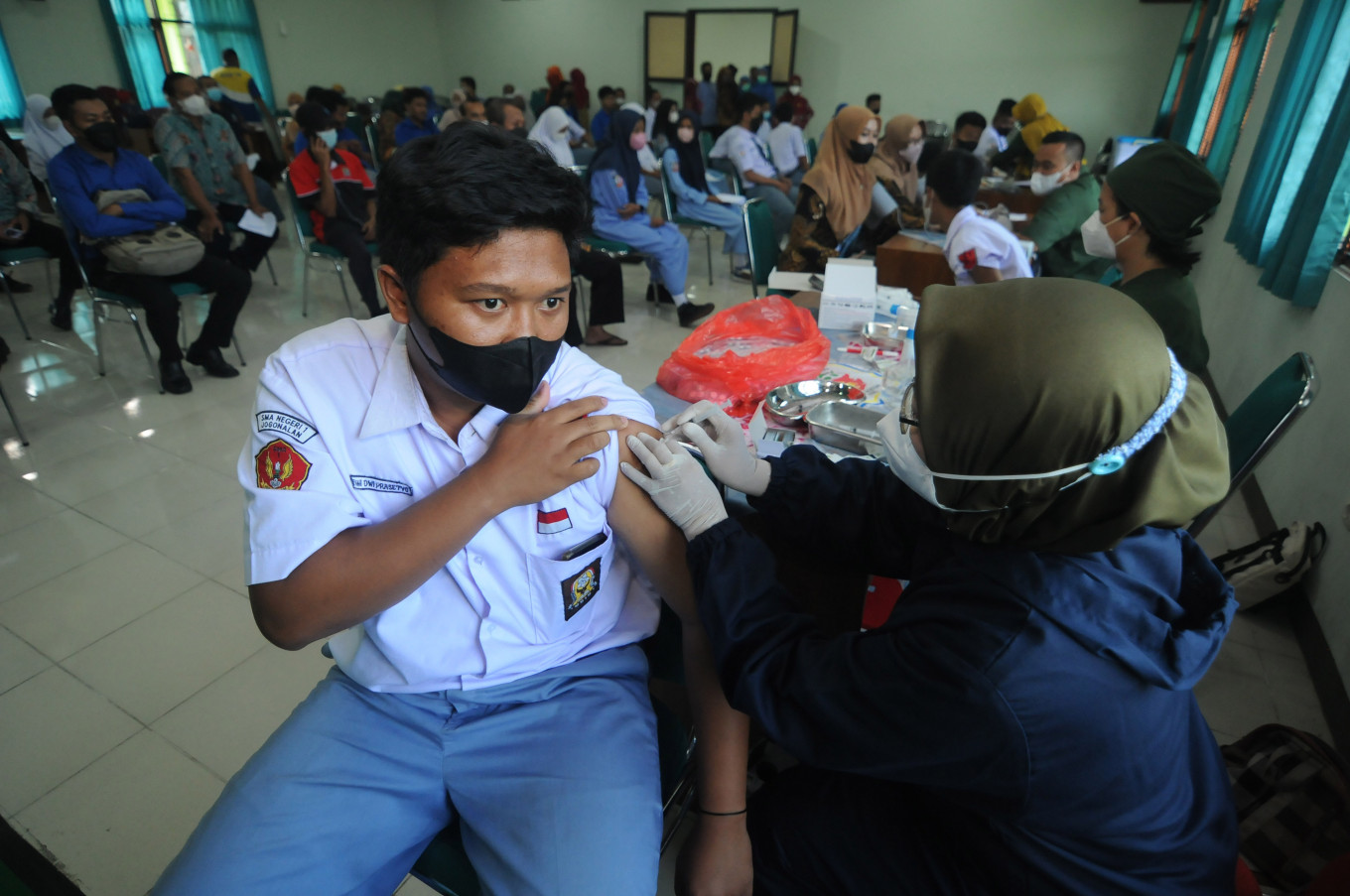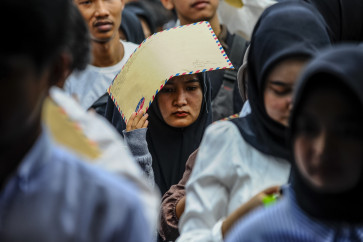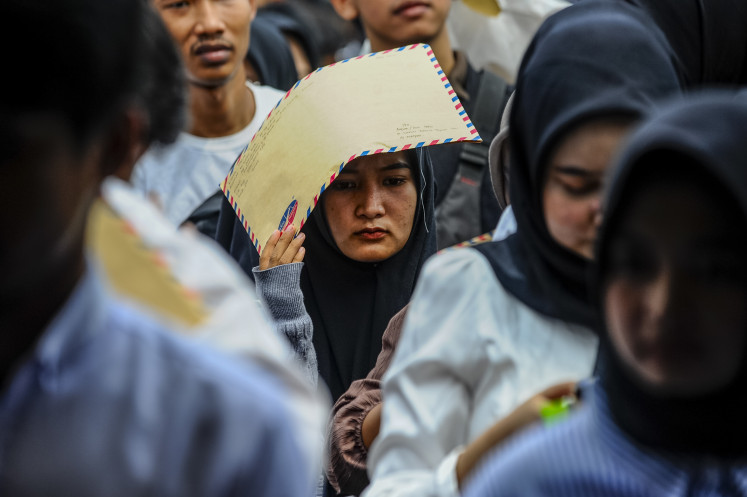Govt says new COVID wave to peak later than predicted
The return of haj pilgrims has sparked concerns over fresh COVID-19 outbreaks in the country.
Change text size
Gift Premium Articles
to Anyone

T
he government has said the peak of the current wave of COVID-19 infections would likely be delayed from the previously predicted second or third week of July, due to the discovery of the BA.2.75 variant and the return of haj pilgrims.
“With the return of the pilgrims, it’s likely that [the peak of the wave] will happen differently,” Health Minister Budi Gunadi Sadikin said on Tuesday in Jakarta as quoted by Detik.
More than 92,000 Indonesian pilgrims are gradually returning from Saudi Arabia starting from July 15 until Aug. 13 just as the country is expecting to see the peak of its fourth wave of infection, fueled by the Omicron subvariants, BA.4 and BA.5.
The return of haj pilgrims has sparked concerns over fresh COVID-19 outbreaks in the country.
According to Budi, there is a high possibility that the returning pilgrims could contract new variants of COVID-19 and spread them to other people, particularly because pilgrims usually celebrated their return with family and friends.
As of Thursday, 19 returning haj pilgrims had tested positive for COVID-19, according to the ministry.
Earlier this week, Indonesia reported its first cases of BA.2.75 Omicron subvariant – often referred to as “centaurus”, with one case in Bali and two in Jakarta.
"The one in Bali was an imported case, while the two cases in Jakarta are locally transmitted, we're currently trying to find the source of infection," Budi said in a press conference on Monday.
The BA.2.75 subvariant was first detected in India in early May and has since spread to at least 15 countries.
Earlier this month, the World Health Organization (WHO) labeled the new mutation as a Variant of Concern Lineage Under Monitoring, which means that it's still too early to know whether the new subvariant will pose a threat to public health.
Although there is still much unknown about BA 2.75, the subvariant is causing concern due to its high transmission rate in India and the possibility that its mutations could escape antibodies just like the BA.4 and BA.5.
The discovery of the BA.2.75 subvariant comes as Indonesia is seeing its highest COVID-19 transmissions in months.
The country recorded more than 5,000 new daily cases from Tuesday to Thursday, with 5,653 new infections on Tuesday – the highest daily caseload since March 23, according to official data from the national COVID-19 task force.
Last week, the country recorded 22,684 new cases, a 27.6 percent increase from the previous week with 16,426 new cases. As of Friday afternoon, the country had a total of 38,239 active cases.
As of July 15, the country’s weekly positivity rate was 11.7 percent, surpassing the World Health Organization’s benchmark of 5 percent.
No curb change
Despite concerns over increased COVID-19 infections, the government will not impose mandatory centralized quarantine or post-arrival testing for haj pilgrims due to their full vaccination status. However, those who showed flu-like symptoms would still be required to take COVID-19 tests.
The government also announced on Monday that it would continue to impose the lowest level of the four-tiered public activity restrictions (PPKM) in all parts of the country until early next month, even with the discovery of BA.2.75 and exponential case surge in several provinces.
Jakarta and Banten provinces for example will remain under the least stringent PPKM Level 1 despite the WHO having categorized both provinces under Level 3 (high COVID-19 incidence) and Level 2 (moderate COVID-19 incidence) community transmission, respectively.
Budi said the decision was taken considering the fact that most provinces were still categorized under Level 1 community transmission and the relatively low COVID-19 hospitalizations and deaths during the current surge of transmissions.
Since the start of the fourth wave, Indonesia has been recording less than 15 deaths per day. The nationwide bed occupancy rate also remains stable at around 3-4 percent.
However, in Jakarta and Banten, the COVID-19 bed occupancy rate has reached 12 and 10 percent respectively and the occupancy rate in ICU rooms around 13 and 17 percent.
Experts have previously warned that the real amount of COVID-19 infections in the country might be much higher than the official tally, due to Indonesia's low testing rate and the fact that more than 70 percent of the country's PCR tests were conducted in Jakarta.
The government is trying to ramp up third dose vaccinations to anticipate longer COVID-19 waves, including by requiring participants of large-scale events and returning haj pilgrims to get booster jabs.
Indonesia has the fourth lowest booster shot coverage among ASEAN countries, with only about 25 percent of the targeted 208 million people having received the third dose.









